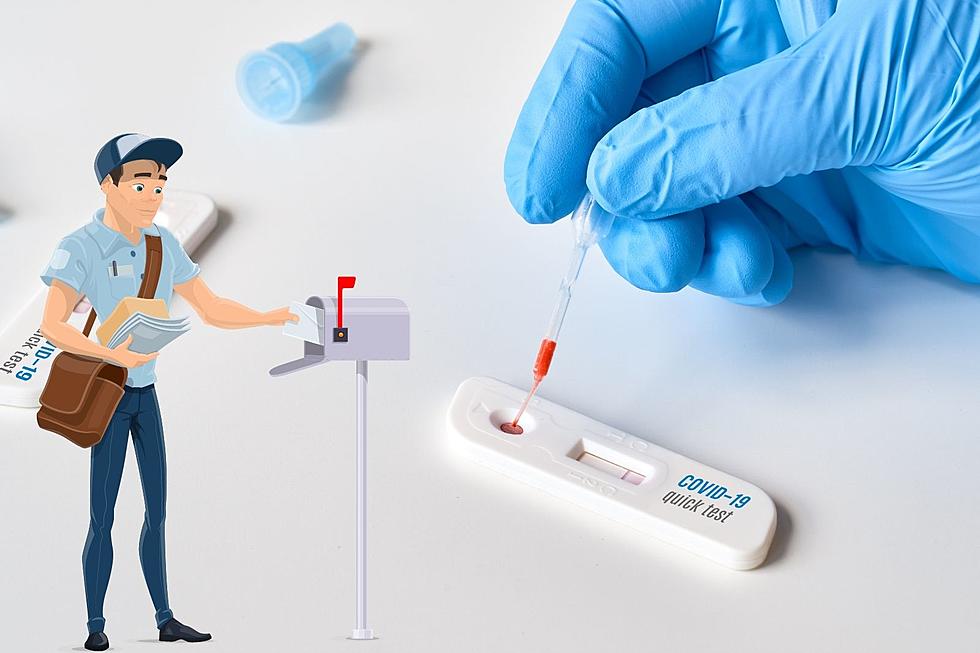
Indiana Doctor Clarifies Who is Currently Eligible for 2nd COVID Boosters
COVID-19 doesn't dominate the headlines like it used to when it first began to spread in early 2020. While it is still very much a part of our daily lives, most of us seem to have moved on and resumed our pre-pandemic routines. However, with the Omicron variant's BA.5 mutation, case numbers are starting to rise again across the country, including here in the Tri-State where nearly every county in our area is listed as "High" on the Center for Disease Control and Prevention's Community Levels map.
Fortunately, even though case numbers are creeping back up, the number of hospitalizations and deaths are not. But, with other newsworthy topics such as gas prices, inflation, and extreme weather conditions, among others, now taking precedent in the 24-hour news cycle we live in, current CDC guidelines such as whether or not you need to quarantine if you've had close contact with someone who has tested positive for COVID are quickly forgotten. The answer to that question, by the way, depends on whether or not you're considered fully vaccinated according to the CDC. But, "fully vaccinated" means different things for different groups of people. It's all become a little confusing. So, we reached out to Dr. Andrew Benton at Deaconess Gateway Hospital in Newburgh to get some clarification on who can get a second booster, when he thinks the rest of us will be eligible, and what exactly happens when the virus mutates.
Take a listen to our full interview with Dr. Benton in the player below, or scroll down to read the full transcript.
Leslie: The reason that we wanted to talk to you is because I'm over 50 and I thought that it was 65 and over for the second booster. I heard rumblings and saw some things on social media that it wasn't. So, I had to go to my pharmacy and ask if this is real, like I can get my booster now, and they had to check. It's not put out there as much as it used to be. What are the guidelines now?
Dr. Benton: I get that question in my office all the time from patients. So, there's a few nuances here, but in general we're recommending that everybody gets a booster five months after you finish your primary series. So, for Pfizer, Moderna, that would be your first two doses, or for Johnson &r Johnson that would be your first dose, and then people over age 50 or people who have certain health conditions that suppress the immune system, they should actually get a second booster four months after their first booster.
Ryan: So right now, that would be the people like you said immunocompromised and people over the age of 50, which would qualify Leslie, do you have any insight as to when or if they will open that second booster up to people under the age of 50? How's the process work for them to decide who gets it and who does?
Right, so that's another good question. I answer that in my office a lot. So, the FDA right now is looking at considering a recommendation for second boosters for people under age 50. We don't have that recommendation right now, although I wouldn't be surprised if that were to come out in the coming weeks.
Ryan: Let's talk about COVID cases. Here in the Tri-State we do see that they are starting to rise a little bit. I assume, and correct me if I'm wrong, are most of them that you're aware of due to the new Omicron variant, what is it, BA.5, I believe?
Yeah, so pretty much. All of the coronavirus cases that we're seeing now are from Omicron, and there are some different subtypes, the BA.4 or the BA.5. Now, we usually don't nail it down to that specific, you know on the patient level, so your result isn't going to come back and say BA.4, BA 5, but yeah, almost all the cases we're seeing are Omicron, and some of the differences with Omicron, we think, that it's probably more infection, so more likely to be spread from one person or another compared to past variants. The symptoms seem like they're presenting a little bit differently, and this is more anecdotal than what I'm seeing in my practice, initially, we were seeing a lot of people presenting with loss of taste or smell, presenting with fever, and I'm seeing less of those symptoms. More of the symptoms that I see in my patients would be like the sore throat, nasal congestion, a dry cough that seems to be more prevalent now.
Leslie: And when you say that with this variant, for someone who may not really understand how viruses mutate and work, and this is Omicron compared to what we originally started with, briefly explain why that is.
Yeah, so, well, like let's say if you had a piece of paper and you want to make a copy of it, well, you put it in a copy machine, [and] make a copy of it. Well, every time you make a copy, it might change just a tiny little bit. And, when we're talking viral replication, that's going to happen millions of times. So, over time it could change a little bit. And over time, it's possible that it changes enough that it becomes more transmissible, or it might become resistant to vaccinations, or anything else.
Ryan: It seems to me, and you kind of alluded to it there, and correct me if I'm wrong, but it feels like as this virus has mutated, or whatever you want to call it, it seems to be, not that it's not any less dangerous because I know for certain people it still can be very dangerous, but it seems the hospitalization rates and the death rates have gone down, and maybe the severity of the virus itself has gone down a little bit. Based on your knowledge of viruses, is it possible that this thing could mutate itself, maybe not to extinction per se, but because of the mutations, that's the cause of why it's not as strong as it was when it first broke out?
Well, that could be, and so I think there are a number of reasons why we're seeing, although we are seeing an increased number of cases, in general, these people are not filling up the hospitals, they're not passing away like they were at rates earlier in the pandemic, and so that's one of the theories that perhaps that's because this virus has mutated in a way that maybe it just doesn't do that as much anymore, but I think probably more of that is because most people these days have some amount of protection. That’s either from vaccination, hopefully being boosted, or if not, a previous infection. There's also some treatments that we have available for coronavirus now that weren't available to us even just months ago. We have oral at-home coronavirus treatments that work extremely well to keep people out of the hospital.
Leslie: Now I want to ask you two as far as like, let's say that someone tests positive but they test positive through a home test that you can get over the counter at a pharmacy, are you still supposed to let your local health department know so we can keep track of the numbers in order to help track the virus?
Well, I would recommend that you reach out to your physician about that and they can put it in their medical record system and that can get reported. That way there's probably not a whole lot of utility in reaching out to your actual health department, just to be honest, they probably just don't have the resources to be able to collect all those reports.
Leslie: But you still want to let, as far as keeping track of the numbers and being able to study each individual variant, and what's going on with it, just contact your medical provider to keep them up to date, right?
Yeah, I think that's one of the take home points. And, the other one here is, like I said, there are at-home oral coronavirus treatments that are available now, and the only way to get those is going to be to speak to a provider about that. I'm a little bit more judicious on who I prescribe that too, but in general, they're reserved for people at a high risk for coronavirus, and your doctor is going to be the best person to determine whether that fits you or not.
Ryan: That's Dr. Andrew Benton, family Doctor, Deaconess Gateway in Newburgh, where you will find him. Dr. Benton, appreciate the time today. Thank you so much.
Sure, thanks for having me.
Answers to 25 common COVID-19 vaccine questions
More From WGBFAM









